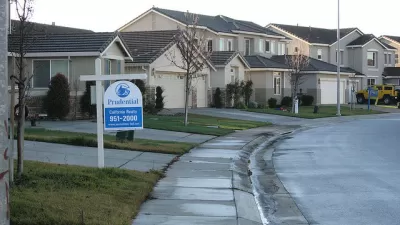Seeing an opportunity for massive profits, private companies have snapped up homes and become corporate landlords in cities across the country.

In a feature piece, Francesca Mari writes about the rise of the single-family-rental market, a vast network of private-equity firms drastically changing American cities:
Strategic Acquisitions was but one of several companies in Los Angeles County, and one of dozens in the United States, that hit on the same idea after the financial crisis: load up on foreclosed properties at a discount of 30 to 50 percent and rent them out. Rather than protecting communities and making it easy for homeowners to restructure bad mortgages or repair their credit after succumbing to predatory loans, the government facilitated the transfer of wealth from people to private-equity firms.
It is a $60 billion real estate industry that has taken control of hundreds of thousands of homes, pushed moderate-income and middle-income people out of the housing market, and left renters struggling with deplorable housing conditions.
Mari details the trials and tribulations of one renter in California, who ended up renting the San Fernando Valley home he previously owned. She also describes the efforts of tenants who have organized and fought back against excessive fees, lack of maintenance, and evictions.
"In some communities, [the housing grab] has fundamentally altered housing ecosystems in ways we’re only now beginning to understand, fueling a housing recovery without a homeowner recovery," says Mari.
FULL STORY: A $60 Billion Housing Grab by Wall Street

Alabama: Trump Terminates Settlements for Black Communities Harmed By Raw Sewage
Trump deemed the landmark civil rights agreement “illegal DEI and environmental justice policy.”

Planetizen Federal Action Tracker
A weekly monitor of how Trump’s orders and actions are impacting planners and planning in America.

Why Should We Subsidize Public Transportation?
Many public transit agencies face financial stress due to rising costs, declining fare revenue, and declining subsidies. Transit advocates must provide a strong business case for increasing public transit funding.

Understanding Road Diets
An explainer from Momentum highlights the advantages of reducing vehicle lanes in favor of more bike, transit, and pedestrian infrastructure.

New California Law Regulates Warehouse Pollution
A new law tightens building and emissions regulations for large distribution warehouses to mitigate air pollution and traffic in surrounding communities.

Phoenix Announces Opening Date for Light Rail Extension
The South Central extension will connect South Phoenix to downtown and other major hubs starting on June 7.
Urban Design for Planners 1: Software Tools
This six-course series explores essential urban design concepts using open source software and equips planners with the tools they need to participate fully in the urban design process.
Planning for Universal Design
Learn the tools for implementing Universal Design in planning regulations.
Caltrans
Smith Gee Studio
Institute for Housing and Urban Development Studies (IHS)
City of Grandview
Harvard GSD Executive Education
Toledo-Lucas County Plan Commissions
Salt Lake City
NYU Wagner Graduate School of Public Service





























